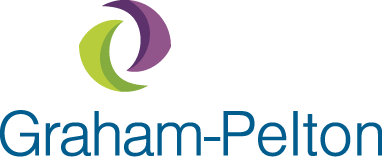
Nonprofit fundraising is constantly evolving, challenging gift officers to continually hone their skills to meet novel and increasingly complex challenges. Amid this rapidly changing landscape, one crucial element remains a constant—the significance of effective coaching in driving team growth and fostering problem-solving capabilities. One powerful coaching method incorporates questions to promote self-awareness, critical thinking, and resourcefulness.
Coaching by means of carefully constructed, thought-provoking questions can be transformative. It can bolster your team’s strategic thinking skills, improve their capacity to cultivate meaningful donor relationships, and enhance their overall performance. Furthermore, this approach helps to instill a culture of continuous learning and curiosity, where individuals are encouraged to question, explore, and innovate.
In this article, we’ll explore why questions are powerful coaching tools through a brief look at AI. (No, not the AI you’re thinking of—read on.)
We’ll also present a range of questions that can be applied across various coaching scenarios—from performance management and frontline fundraising to team building and employee engagement. Along with this, we’ll offer insights on fostering a supportive environment conducive to effective questioning and discuss the advantages your organization stands to reap by adopting this approach. So, let’s dive in!
The Power of Asking Questions
Artificial intelligence is making headlines regularly. But have you heard about the other “AI” that also holds transformative potential for you and your teams?
Appreciative Inquiry is a strength-based, collaborative, change-management methodology developed in the late 1980’s. Rather than focusing on identifying problems and solutions, appreciative inquiry asks participants to explore what works well in their current situation and how they can build upon these successes to enhance their performance and ultimately the performance of the whole organization.
Appreciative inquiry questions are positive and open-ended to encourage imaginative thinking, spotlighting how people and organizations perform when they are at their best.
Powerful Questions for Coaching Fundraisers
Now that you know a little more about why questions are so powerful and how the appreciative inquiry methodology fosters strength-based professional development, let’s explore how to apply this approach in a fundraising environment.
Outlined below are common coaching scenarios where managers and leaders can integrate questions into their coaching process. We’ll provide sample questions for each scenario, explaining why they’re effective.
Performance Management Questions
- “What do you consider your biggest fundraising success, and what factors contributed to that success?” This question invites the fundraiser to reflect on their strengths and what works best for them. It fosters a mindset of building on strengths instead of dwelling on deficiencies.
- “Can you share a moment where you exceeded your performance expectations and what led to that success?” This question encourages reflection on successful strategies and behaviors that can be replicated in the future. It promotes a self-awareness of personal capabilities and a positive affirmation of the fundraiser’s potential to excel.
- “What adjustments did you make in response to past feedback that resulted in improved performance?” This question prompts fundraisers to think about their receptiveness to feedback and adaptability, both of which are key to ongoing development and performance improvement. It validates the importance of feedback and its role in personal and professional growth.
Frontline Fundraiser Questions
- “What aspects of your relationship with the donor make you confident about the next step?” This question allows the fundraiser to examine their strengths in relationship-building and how these strengths can be applied to future interactions.
- “What have you learned from previous interactions that you can apply here?” The goal here is to encourage the application of lessons learned from past experiences, further strengthening skills and confidence.
- “What is the ideal outcome you envision, and what would be the signs that you’re on the right track?” This question invites the fundraiser to visualize their goals and identify markers of success. It promotes a forward-looking mindset that is essential in fundraising.
- “In an ideal situation, how would you like this donor to describe their relationship with our organization?” By asking this question, you challenge fundraisers to look at the situation from the donor’s perspective—a critical skill in fostering enduring relationships.
Team Building Questions
- “How could you leverage your team’s strengths and resources to accomplish this goal?” This question underscores the importance of collaboration, drawing on collective strengths to achieve shared goals.
- “What strengths do you see in your team members, and how can you leverage these for your next project?” This question urges team members to acknowledge the diverse strengths within their team, fostering an appreciation for others’ skills and potential collaborative opportunities. It encourages a focus on positive attributes and team synergy.
- “What practices have helped your team maintain high morale during challenging projects?” This question helps identify successful morale-boosting strategies during times of stress or challenge, which can be reused in future projects. It emphasizes the importance of maintaining a positive work environment for team effectiveness and mental well-being.
- “Can you recount an instance where the team turned a potential failure into a success?” This question prompts reflection on resilience, problem-solving, and the ability to pivot in challenging situations.
Employee Engagement Questions
- “What are some activities or strategies that have increased your engagement and job satisfaction?” This question seeks insights into what drives personal engagement and satisfaction, which can be used to enhance motivation and productivity. It emphasizes the importance of employee well-being and alignment of personal interests with organizational goals.
- “What makes you feel valued and recognized in your role, and how can we promote such practices?” This question encourages reflection on what contributes to the employee’s sense of worth and accomplishment, providing insights to improve recognition strategies. It promotes a culture of appreciation, enhancing employee motivation and satisfaction.
- “Share a time when you felt highly motivated and driven. What factors contributed to this?” This question aims to identify key motivational factors that drive optimal performance, which can be harnessed to inspire ongoing commitment. It reinforces the importance of motivation in achieving personal and organizational goals.
Tactical Considerations: Effective Questioning In Action
Creating a safe and supportive environment is fundamental for this coaching technique to be successful. If your team isn’t accustomed to sharing thoughts in this manner, it’s crucial not to spring this approach on them suddenly, particularly during performance reviews. Remember, some colleagues may prefer to ponder on the questions rather than respond instantaneously.
If your organization has traditionally adopted a top-down, problem-solving approach, your team may initially hesitate in responding to these types of questions. Don’t be discouraged if you don’t observe immediate results. Persistence in asking these questions will communicate that you genuinely value their responses. Simple follow-up questions such as “What else?” or “Can you tell me more?” can demonstrate active listening and lead to open-ended, less scripted responses.
Questions can be asked in one-on-one settings or in group discussions, depending on your organization’s culture. Group settings allow the team to learn from each other’s reflections and build upon them, while one-on-one meetings enable deeper self-reflection.
Resisting the instinct to provide immediate advice is equally critical. While sharing your knowledge and experience may seem like a quick solution, doing so can inadvertently stifle your team’s skill and capacity building.
Learn More: How to tame your Advice Monster, a TED Talk by Michael Bungay Stanier
A Deeper Dive: Team Strength Assessment
Gaining a deeper understanding of your team’s strengths can further enhance your coaching effectiveness, providing insights to tailor your questions to your team’s unique motivations and preferences.
Our recommended assessment tool is the ProScan Survey from PDP Global. This tool focuses on understanding strengths and motivators to mitigate workplace stressors while bolstering morale. Backed by robust research and science, ProScan is user-friendly and easy to implement and interpret.
Whether you’re gearing up for a significant fundraising initiative or need to quickly establish a high-performing team, Graham-Pelton’s Talent Strategy Services offer customized solutions drawn from years of experience in development operations and talent management. To learn more, call Laura McGarry at +1 (800) 608-7955 x1226 or email lmcgarry@grahampelton.com.
Final Thoughts
Questions are a potent tool for personal and professional growth. They unravel new possibilities, deepen understanding, and foster self-reflection. Fundraisers who have ascended to management roles can harness their innate curiosity in donor relationships to coach their teams effectively. By mastering the art of questioning, you not only elevate your fundraisers’ performances but also nurture a culture of curiosity and continuous learning within your organization.
As leaders in the advancement sector, our role isn’t to provide all the answers but to ask the right questions. By doing so, we empower our teams to discover their unique paths to success.

